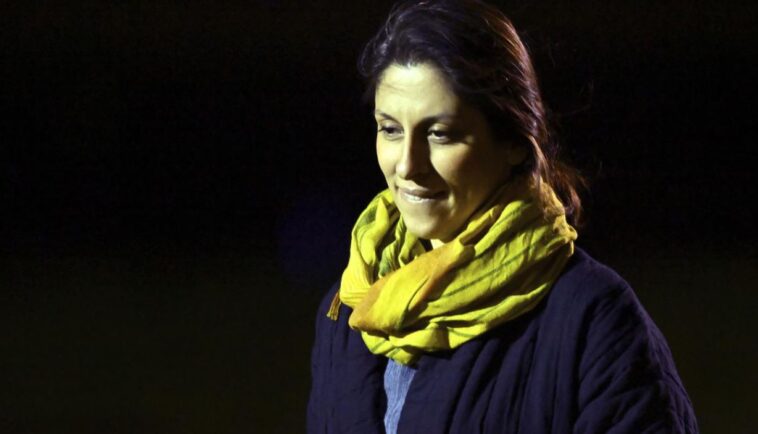Nazanin Zaghari-Ratcliffe’s name became known across the world after her arrest and imprisonment in Iran. For years, she was identified as Prisoner 951. Behind that number stood a woman of strength, a mother separated from her child, and a person whose faith carried her through isolation and fear.
Her story, featured in the BBC’s The Hostages series, is one of endurance, courage, and the human spirit’s ability to survive even in the darkest of times.
The Arrest in Tehran
In April 2016, Nazanin traveled with her young daughter Gabriella to visit family in Iran. It was meant to be a short trip. But when they reached Tehran’s Imam Khomeini Airport, she was detained by Iran’s Revolutionary Guard.
Authorities accused her of plotting against the state and spreading anti-government propaganda. Nazanin denied the allegations, and her family insisted that her detention was politically motivated.
Within days, she was taken to Evin Prison, one of Iran’s most feared detention centers, where she began a long and painful chapter of her life.
Life Inside Evin Prison
Evin Prison is known for its harsh conditions and treatment of political prisoners. For Nazanin, the experience was one of confusion, fear, and unimaginable loneliness.
She spent long periods in solitary confinement, often cut off from the outside world. Letters were censored, visits were rare, and hope felt distant.
Yet even in those circumstances, she found small ways to survive. She drew strength from prayer, from memories of her daughter, and from quiet acts of kindness exchanged with fellow prisoners.
Nazanin’s time inside became a lesson in patience and faith. She later described how she learned to hold on to her sense of self, even when everything else was taken away.
The Campaign for Freedom
While Nazanin endured her imprisonment, her husband Richard Ratcliffe began a public campaign for her release. His efforts became one of the most persistent human rights campaigns in recent British history.
He held hunger strikes outside government buildings, met with officials, and gave countless interviews to keep his wife’s name in the headlines.
The campaign drew support from around the world. Human rights organizations, journalists, and politicians joined in the call for her freedom.
Her case also highlighted the wider issue of foreign nationals being used as bargaining chips in diplomatic disputes. It raised deep questions about justice, diplomacy, and the responsibilities of governments to protect their citizens abroad.
Release and Return to the UK
After almost six years in detention, Nazanin Zaghari-Ratcliffe was finally released in March 2022. Her freedom came as part of a diplomatic resolution between the UK and Iran involving the settlement of a long-standing financial debt.
When she landed back in Britain, the reunion with her daughter Gabriella was emotional. But freedom did not erase the pain of the years lost.
Nazanin spoke openly about the difficulties of adjusting to normal life again. The trauma of imprisonment, the separation from her child, and the weight of public attention all took time to heal.
Life After Captivity
https://www.youtube.com/watch?v=PBv_nyZVgN0
Nazanin has used her experience to raise awareness about political prisoners and the human cost of international politics. She continues to speak for those who remain detained unjustly around the world.
Her faith and resilience continue to inspire others. She reminds us that freedom is more than physical release; it is the ongoing process of healing and rebuilding after suffering.
Lessons for People of Faith
Nazanin’s story speaks deeply to those who believe in perseverance, justice, and compassion. Her endurance shows that faith is not only about belief in good times but also about holding hope in seasons of silence and pain.
Her courage reminds us of the importance of standing up for the oppressed and using our voices for those who cannot speak.
Her journey challenges every believer to see faith not just as comfort, but as a call to action, to pursue justice, mercy, and truth wherever they are needed.
Where to Watch Prisoner 951: The Hostages’ Story
The new BBC documentary Prisoner 951: The Hostages’ Story (1×90′) offers a deeply personal look at Nazanin Zaghari-Ratcliffe’s ordeal and the political complexities behind her detention.
The film explores how her imprisonment was tied to decades-old financial disputes between the UK and Iran, and questions why the British government failed to secure her release sooner. It also highlights the grassroots movement that pressured leaders into action, including her husband Richard Ratcliffe’s 21-day hunger strike that captured the world’s attention.
The documentary was commissioned by BBC Factual’s Documentaries Department and produced by Fremantle’s Dancing Ledge Productions for BBC iPlayer and BBC Two.
-
Director: Erica Gornall
-
Producer: Cassie Cornish-Trestrail
-
Executive Producer: Fatima Salaria
Viewers in the UK can watch Prisoner 951: The Hostages’ Story on BBC iPlayer or tune in to BBC Two. International availability may follow later through BBC’s global platforms.
Conclusion
Nazanin Zaghari-Ratcliffe’s story as Prisoner 951 is one of unimaginable hardship, but also of light that refused to be extinguished.
Her experience invites reflection on freedom, justice, and the strength of the human soul. It reminds us that while darkness can confine the body, it cannot imprison faith or silence truth.
If you are into British TV, here is everything you need to know about Titanic Sinks Tonight, Strictly Come Dancing 2025, and Cymru Wales Explores Art and Music Heritage.

